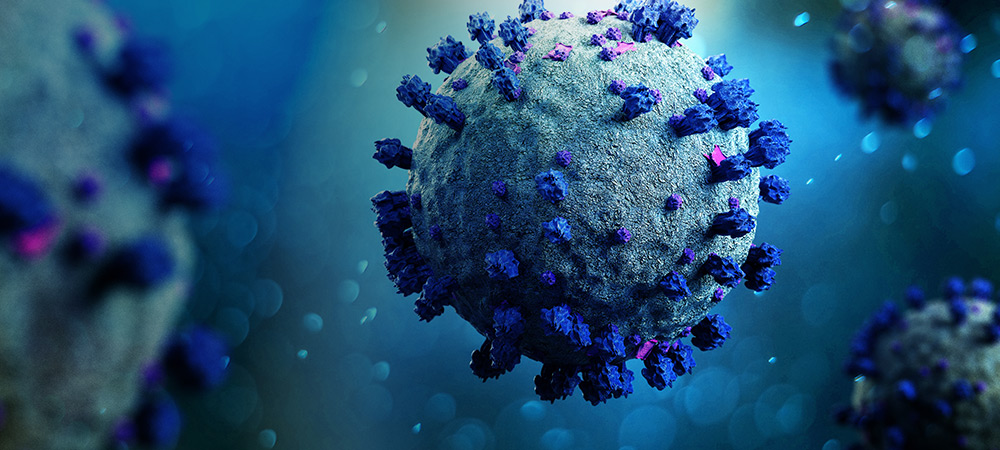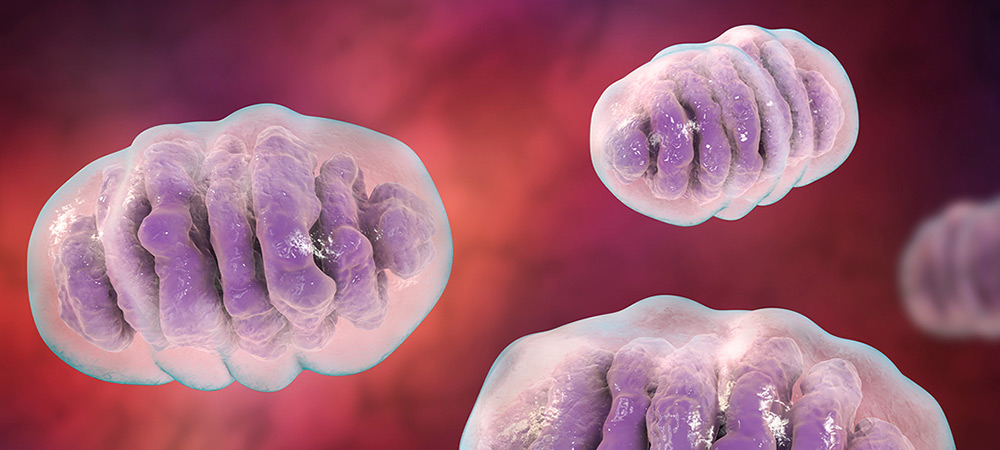Evidence Based Nutraceuticals in the Treatment of Hashimoto’s Disease, by Katie Rothwell, ND

Hashimoto’s disease is one of the most common endocrine disorders in North America and the primary cause of hypothyroidism in women. This lecture will review the pathophysiology of this disease and then focus specifically on the nutraceuticals that have evidence in treating Hashimoto’s Hypothyroidism, including selenium, vitamin D, inositol, black cumin, and iodine. Testing, dosing, […]
Pain Management with Nutraceuticals/Botanicals in Women’s Health- Gynecology and Primary Care, by Dr Tori Hudson, ND

Occasional inflammation and pain can come in many shapes and sizes and can hinder one’s ability to stay active and have an acceptable quality of life. There are many nutraceuticals and botanicals that can be used to address these issues. While the modern research has expanded in these areas, it’s important to remember the traditional […]
Immune Regulation of Cancer, by Dr Neil McKinney, BSC, ND, NATUROPATHIC PHYSICIAN (NON-PRACTICING)

The immune system can both enable and disable cancer cells. The immune system can eliminate cancer cells, but often gets recruited to enter repair (inflammation) or nurse (support) mode, which promotes tumour growth and spread. Inflammatory cells are abundant in many tumours, as one might expect in “the wound that will not heal”– macrophages, neutrophils, […]
Long COVID; Pathophysiology and Potential Treatment Options, by Dr David W Lescheid, BSC, PHD, ND

a recently identified syndrome defined as the presence of one or more symptoms, in one or more organ systems, that persist for at least four weeks after an acute infection with the SARs-CoV-2 virus. There is a high unmet medical need for Long COVID because: 1) it occurs in at least 10-30% of individuals following […]
Metabolism, Mitochondria, and Epigenetics, by Dr Neil McKinney, BSC, ND, NATUROPATHIC PHYSICIAN (NON-PRACTICING)

Major determinants of cancer growth and spread include damage to and loss of mitochondria, and the level of fermentative metabolism. While these foundation concepts have been known for generations, they have not been translated into clinical oncology practice. Shifts in nutrient sensing pathways, cellular acidification, and hypoxia influence mitochondrial function, and can trigger a turn towards a […]
Reclaim, Restore, Renew Life – Investigating the current state of evidence, pathology, and treatment related to chemo brain, by Dr Katrina Cox, ND

It is estimated that eighty-five percent of adult cancer survivors suffer with an accumulation of chronic conditions, including depression, fatigue, and cognitive impairments resulting from cancer and its treatment. Depending on the type of cancer and treatment Cancer Related Cognitive Impairment (CRCI) can affect seventeen to seventy five percent of those diagnosed with cancer throughout […]
Integrative Approach to Actinic Keratosis and Non-melanoma Skin Cancer, Dr Michael Traub, ND, DHANP, CCH, FABNO

Actinic keratosis (AK) is a cutaneous lesion that results from the proliferation of atypical epidermal keratinocytes. AKs represent early lesions on a continuum with squamous cell carcinoma (SCC) and occasionally progress to SCC. AKs often present as erythematous and scaly macules or papules; lesions are most commonly detected in adults with fair skin. Chronic sun […]
Managing Cancer Stem Cells -The Key to Survival, by Dr Neil McKinney, BSC, ND, NATUROPATHIC PHYSICIAN (NON-PRACTICING)

Stem cell properties include self-renewal, capacity to differentiate into various lineages, rapid proliferation, and the ability to go dormant for extended periods. These are critical to wound healing and other normal functions. However, when cancer cells acquire “stemness”, they become extremely dangerous. The ability of cancer stem cells to go dormant allows them to survive cytotoxic therapies and are a primary cause of […]
Integrative Approach to Melanoma, by Dr Michael Traub, ND, DHANP, CCH, FABNO

Dr Traub was recognized for his many years of service to the American Association of Naturopathic Physicians, including President from 2001-2003, when he was honored with the 2006 Physician of the Year Award. His father was a dermatologist, and this inspired Dr Traub to undertake extra study in this subject. He has taught dermatology at […]
Women’s Health Research Update – What’s new, what’s in, what’s out, what works, by Dr Tori Hudson, ND

A steady stream of research on diet, individual nutrients and botanicals provides vital and relevant information for clinicians in everyday practice who are treating women for the plethora of primary care and/or gynecological issues they face. Staying up to date on this research can be challenging and even daunting. This lecture will highlight research from […]
Integrative Approach to Psoriasis, by Dr Michael Traub, ND, DHANP, CCH, FABNO

Psoriasis is a severe, common, multifaceted chronic immune-mediated systemic inflammatory disease resulting from genetic, epigenetic, environmental, and lifestyle factors. Inflammation driven by tumor necrosis factor-α/interleukin-23/interleukin-17 axis is now known to be the major mechanism in the development of psoriasis. In addition, psoriasis has an autoimmune nature that manifests as autoreactive T cells and is co-morbid […]
Top 10 Botanicals in Women’s Health, by Dr Tori Hudson, ND

Women’s health includes a wide array of gynecological and primary care issues, with some being more important or only relevant in one decade of life versus another. This lecture will focus on my top 10 herbs for women’s issues, including the scientific research, as well as the historical and traditional uses in different decades and different health issues in a woman’s life. […]
Integrative Approach to Atopic Dermatitis, by Dr Michael Traub, ND, DHANP, CCH, FABNO

Atopic dermatitis (AD) is one of the most common inflammatory skin diseases. It usually presents in childhood and may persist into adult years, and less frequently develops in midlife. It is characterized by recurrent pruritic, localized eczema, often with environmental fluctuations. Many patients have food allergies and other atopic disorders such as asthma and allergic rhinitis. The prevalence of AD […]
Integrative Approach to Acne, by Dr Michael Traub, ND, DHANP, CCH, FABNO

Atopic dermatitis (AD) is one of the most common inflammatory skin diseases. It usually presents in childhood and may persist into adult years, and less frequently develops in midlife. It is characterized by recurrent pruritic, localized eczema, often with environmental fluctuations. Many patients have food allergies and other atopic disorders such as asthma and allergic rhinitis. […]
A Review of Natural Health Products and Their Antiviral Mechanisms, by Dr Carissa Doherty, ND

In the last 20 years, the world has seen several viral epidemics including severe acute respiratory syndrome (SARS), coronavirus (SARS-CoV-1) in 2003, the influenza disease called HIN1 in 2009, and the middle east respiratory syndrome (MERS) coronavirus (MERS-CoV) in 2012 and now of course the current pandemic. As Naturopathic Doctors, we are uniquely positioned to […]
Mold & Mycotoxin Illness: Clinical Evaluation and Treatment Options, by Dr Jesse Pierce, ND, Bsc

Mycotoxin-induced illness is a rapidly emerging area of interest in environmental medicine and complex chronic illness treatment. Mycotoxins are secondary metabolites produced by microfungi that are capable of causing major health issues in humans and animals. Mycotoxins occurring in food and exposure to mold infected buildings have been linked to long-term effects on health, including the induction of cancers and immune […]
Saffron: A Broad Spectrum of Clinical Applications, by Dr Philip Rouchotas, MSc, ND

The first exploration of saffron in humans was published in 1998, establishing that saffron imparted in vivo antioxidant protection. Subsequently a 2004 intervention trial suggested saffron may have a role as an antidepressant. Since this time an explosion of human research has focused on saffron for a wide array of important clinical applications. To date, approximately 80 human intervention trials examine the role of saffron for use in depression, […]
Beyond the Trend Uprooting Racism in Medicine & Wellness

In the midst of a global pandemic and civil unrest, numerous organizations and institutions published statements of solidarity. The glaring health disparities that exist in underserved and marginalized communities have once again taken center stage. Currently, on-trend, many in the integrative health realm, have pledged to take a deep and critical look at themselves in […]
Integrative Care of Colitis, by Dr Neil McKinney, BSC, ND, NATUROPATHIC PHYSICIAN (NON-PRACTICING)

Colitis includes inflammatory bowel diseases (IBD) such as ulcerative colitis (UC) and Crohn’s disease. These cause significant suffering, disability, and mortality. The standard therapeutic options such as surgery and immune-suppressing drugs are not typically curative and can cause significant harm. Naturopathic medicine offers support for these therapies, and enhancements that in some cases can be curative. Nutrition, nutraceuticals, botanicals, […]
Viva la Vagus: The Neural Control of Inflammation, by Dr David W Lescheid, BSC, PHD, ND

It is well known that persistent inflammation is a key driver of many different chronic diseases. Our current scientific understanding of the inflammatory response now includes evidence that acute inflammation is actively controlled by a resolution phase, which uses different mediators as stop signals and checkpoints for pro-inflammatory signals. Moreover, neuroendocrine pathways, including those from […]

